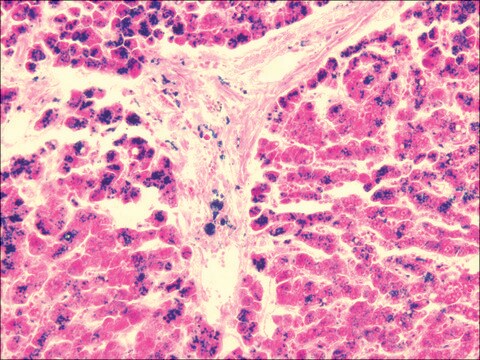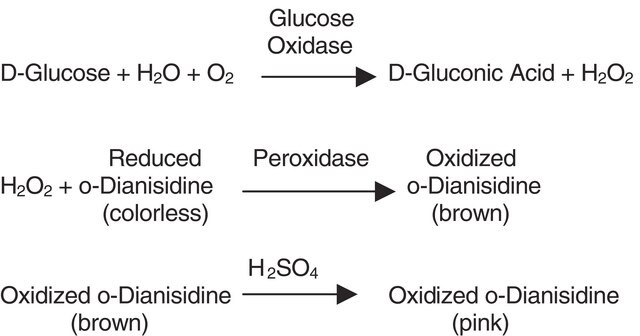234125
Iron(III) ferrocyanide
Synonym(s):
Ferric ferrocyanide, Ferrihexacyanoferrate, Ferrocin, Prussian blue
Sign Into View Organizational & Contract Pricing
All Photos(1)
About This Item
Linear Formula:
Fe4[Fe(CN)6]3
CAS Number:
Molecular Weight:
859.23
EC Number:
MDL number:
UNSPSC Code:
12352302
PubChem Substance ID:
NACRES:
NA.55
form:
powder
Recommended Products
form
powder
Quality Level
concentration
≥30% (ICP)
λmax
694 nm
SMILES string
[Fe+3].[Fe+3].[Fe+3].[Fe+3].N#C[Fe-4](C#N)(C#N)(C#N)(C#N)C#N.N#C[Fe-4](C#N)(C#N)(C#N)(C#N)C#N.N#C[Fe-4](C#N)(C#N)(C#N)(C#N)C#N
InChI
1S/18CN.7Fe/c18*1-2;;;;;;;/q;;;;;;;;;;;;;;;;;;3*-4;4*+3
InChI key
DNMNDNSFJMUUFM-UHFFFAOYSA-N
Looking for similar products? Visit Product Comparison Guide
Related Categories
Application
Iron(III) ferrocyanidecyclic can be used as:
- A catalyst to synthesize cyclic carbonates by reaction between carbon dioxide and epoxides.
- A precursor to prepare Fe-Fe3C nanoparticle encapsulated N-doped graphene layers via pyrolysis.
Storage Class Code
11 - Combustible Solids
WGK
WGK 1
Flash Point(F)
Not applicable
Flash Point(C)
Not applicable
Choose from one of the most recent versions:
Already Own This Product?
Find documentation for the products that you have recently purchased in the Document Library.
Customers Also Viewed
Lijuan Han et al.
Biosensors & bioelectronics, 43, 120-124 (2013-01-08)
In this study, we report a triple-component sensor fabricated by freestanding graphite felt (GF), platinum nanoparticles (Pt) and Prussian blue (PB). Pt is ultrasonically-electrodeposited on GF to increase the conductivity and to render the catalysts to the chemical deposition of
The crystal structure of Prussian blue: Fe4 [Fe (CN)6]3. xH2O.
Buser HJ, et al.
Inorganic Chemistry, 16(11), 2704-2710 (1977)
Y Vaheb et al.
Journal of nanoscience and nanotechnology, 12(11), 8710-8714 (2013-02-21)
We investigate the assembly of Prussian blue and Cs-Co-Cr Prussian blue analogue molecular nanomagnets into nano-patterned electrodes. Pd or Au gaps - 7-50 nm were fabricated on a SiO2/Si substrate using standard electron beam lithography and lift-off. Nanomagnets were positioned
Prussian blue and its analogues: electrochemistry and analytical applications.
Karyakin AA.
Electroanalysis, 13(10), 813-819 (2001)
Vasanthi Siruguri et al.
The Indian journal of medical research, 136(1), 89-97 (2012-08-14)
The present study was carried out on stored rice variety PAU 201 in Punjab that was not permitted for milling and public distribution due to the presence of damaged grains at levels exceeding the regulatory limits of 4.75 per cent.
Our team of scientists has experience in all areas of research including Life Science, Material Science, Chemical Synthesis, Chromatography, Analytical and many others.
Contact Technical Service





